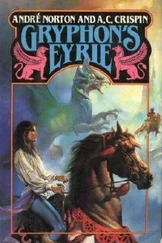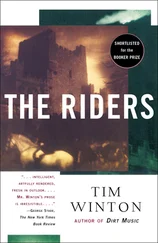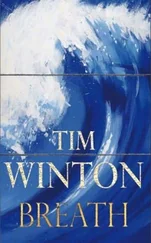Don’t see you on the telly anymore.
Nah, they rissoled me.
Well, you did call that fat cunt a crook. And on the telly, no less.
I did.
So yer old man was wrong, then. The truth won’t set you free.
Keely shrugged indulgently.
So, what’ll those shit-stirrers do without ya?
They seem to be coping.
Pity, said Wal. Got used to seein ya every other night. In ya fancypants suit. Stirrin the possum.
Constraining our great economy.
Makin us all feel guilty for fuckin the world up.
Traitors to progress, Wal.
Tree-huggin homosexuals, the lottaya. Strippin the hair off a man’s chest.
Keely laughed; the old bugger was only half joking.
Need some work done?
Nah, said Keely with a grimace. Boat’s gone. Only the tinnie left. Just walking past, really.
Once a victim, eh? They get ya, boats. They’re not as much fun, but women are cheaper, son.
I thought you might’ve retired.
Who can afford not to work? said Wally, looking him up and down appraisingly.
Well, some have greatness thrust upon us.
And how’re you enjoyin it?
Don’t ask.
Hittin the piss, by the looks. So, how’s that girla yours?
Keely’s wince was enough.
Well, shit. You are in the wars.
Nah, that’s old news.
Wally wiped his hands on a rag and climbed out over the transom to sit splaylegged on the boat’s marlin-board. He was a short, fat man, bald and speckled with sun lesions. He sported a glass eye. And it was immediately evident he did not favour undies.
No bulldust, with that fluff on your face you really do look like him.
Nah, said Keely, basking a little despite himself.
You know, he’d be as old as me now. Think of that, eh? He never got old.
You’re not that old, Wal.
Well, youth has flown, sunshine. There it is. Unlovely fact.
Keely dipped his head. In this man’s presence he felt about fifteen years old.
Just think of it, but. Last time I saw him he was younger’n you.
Yeah, I do think about it. Too much, these days.
Well. We got that in common, then. That and our good looks.
Keely stood there toeing a ravaged drive belt.
He’s a hard one to live up to, Wal.
But you’re a chip off the old block, son.
No.
Any mug can see it. Out there savin the world from itself. Callin it as ya see it. And gettin ya tit in the wringer for ya trouble. He’d be proud, the mad sod.
Hey, said Keely, trying to break the drift of the conversation. You still ride a bike?
Piles and all.
Never give up the Norton, eh?
’65 Atlas.
Nev swore by the Trumpy.
Hate the Poms, love their bikes, said Wal with a grin. His teeth had not fared well.
Keely felt soft as a chamois, perilously vulnerable. He was suddenly apprehensive about what the old fella might say next.
Your mum orright?
Keely nodded.
Bloody fine woman.
She is.
How old are ya, exactly?
Forty-nine.
Truly, ya do look like him, son. At the end.
Keely felt the jab in his guts.
And I don’t say it to make a prick of meself.
No? he asked, smarting.
As a mate, son.
Really.
Him and your mum — they never went soft, didn’t fake it, never gave up. If his heart hadn’t give out, he’d’ve been up and back at it. That was him, what I loved about him. He had that boilin thing in him. You know: Fuck this, let’s do somethin about it. Of all that churchy talk, son, it was the only thing rung true to me. Like he said, believe what ya like. Think what ya like. You’ll be judged for what ya do. Even if ya cock it up. Die tryin. You were a kid, I spose. You won’t remember.
I remember, Wal.
Well, just bloody make sure ya do.
What’re you saying?
I dunno. What would I know? Just don’t roll over and go soft. Show some family pride and stick it up em.
The old man looked at Keely a long moment, eyes lit up. But blinking, too, as if remorseful. Sensing he’d let himself get caught up and had said too much.
There ya go. Advice on life from Wally Butcher. If ya didn’t look broke I’d send you an invoice.
Always happy to listen to wisdom, Wal, said Keely tightly. Anything else while I’m down here?
Always pay cash. And try not to piss in the shower.
Shoulda brought a notebook, said Keely.
That’s all the nuggets I got, son.
Well, it’s plenty to be going on with.
Wally rooted around in his shirt pocket a moment and passed down an oil-stained card.
Give us a call sometime — we’ll go crabbin.
No worries.
And say hello to your mother.
I will.
Sure yer orright?
Yeah, he lied.
Here, shake a man’s hand, why don’tcha.
Keely shook his big, gnarled, greasy paw and stood gormlessly for a moment until Wally hoisted himself back into the bowels of the boat.
His father.
Once more.
Forever.
The father.
Keely walked homeward stung but more or less coherent, as if Wally’s bluntness had momentarily unscrambled him.
Lame that it always came back to this. Faith said he was a man who needed reminding he had a mother, a parent who had not been dead thirty-five years.
Yet there it was. The father-shaped hole in him, hot and deep and realer than any notion he had words for.
Neville Keely. Forever the young bear. How would he have fared, had he survived? This was an era for reptiles, not bears. Would he have faced down the shellacked bump and grind of the evangelical super-church, the evil sugar-drip of prosperity theology? Imagine him taking his stolid, courageous Bonhoeffer into that swamp of co-option and collaboration. Maybe Wal was right. If not for the heart attack he might have still gone out and kicked some iniquitous arse. Or perhaps he’d have moved on to subtler work like his widow. And it was true, Faith was right, Doris had only become visible to Keely once the old man’s gigantic presence was gone. Still, he left a hell of an absence. It was harder all the time to distinguish reality from myth. And he’d known for years that he modelled himself upon a memory. Probably unwise. But impossible to let go, even now.
How could you measure up? There was no longer any grand striding towards justice and equality. In this new managerial dispensation change was incremental or purely notional. Big gestures were extinct. Even on YouTube messianic figures arose and evaporated in hours. And yet he knew his father was not just a man of his time. For all his own triumphs as an activist, the forest coupes spared, the spills exposed and species protected, there’d be no one talking about Tom Keely in thirty years. His father had exceeded the bounds of his class and refused to follow the template of his generation.
He had nine years of school to his name. Married a wharfie’s daughter, put in ten hours at the workshop, four in nightschool, enrolled at a provincial bible college and took theology units by correspondence, then waded untimely into parish affairs, bringing a bit of shopfloor pugnacity to matters of the spirit. The man remade himself, then tried to refashion the entire world around him, which was his making and breaking, Keely knew it — and by comparison he felt like a coaster, the inheritor of another man’s social and moral capital. From his baby-boom standpoint of generational ease, it was hard to credit just how hard Nev had worked, how far he dragged himself, how wildly he swam against the current.
Keely only had to recall how wrong his father looked in church. He simply wasn’t a suit man, wouldn’t even consent to wearing the Pelaco shirt or brown brogues of the true evangelical. Doris said that in his jeans and workshirt he looked like a wrestler impersonating Woody Guthrie. He was for the little bloke, the reject, the no-hoper. He bellowed about saving bodies as well as souls. Keely could remember it vividly: the early excitement in the drip-dry congregation at having this rough beast suddenly among them, the parishioners thrilled at being groovy enough to hire him. And the queer cocktail of pride and shame he felt as a boy hearing Nev preach.
Читать дальше












